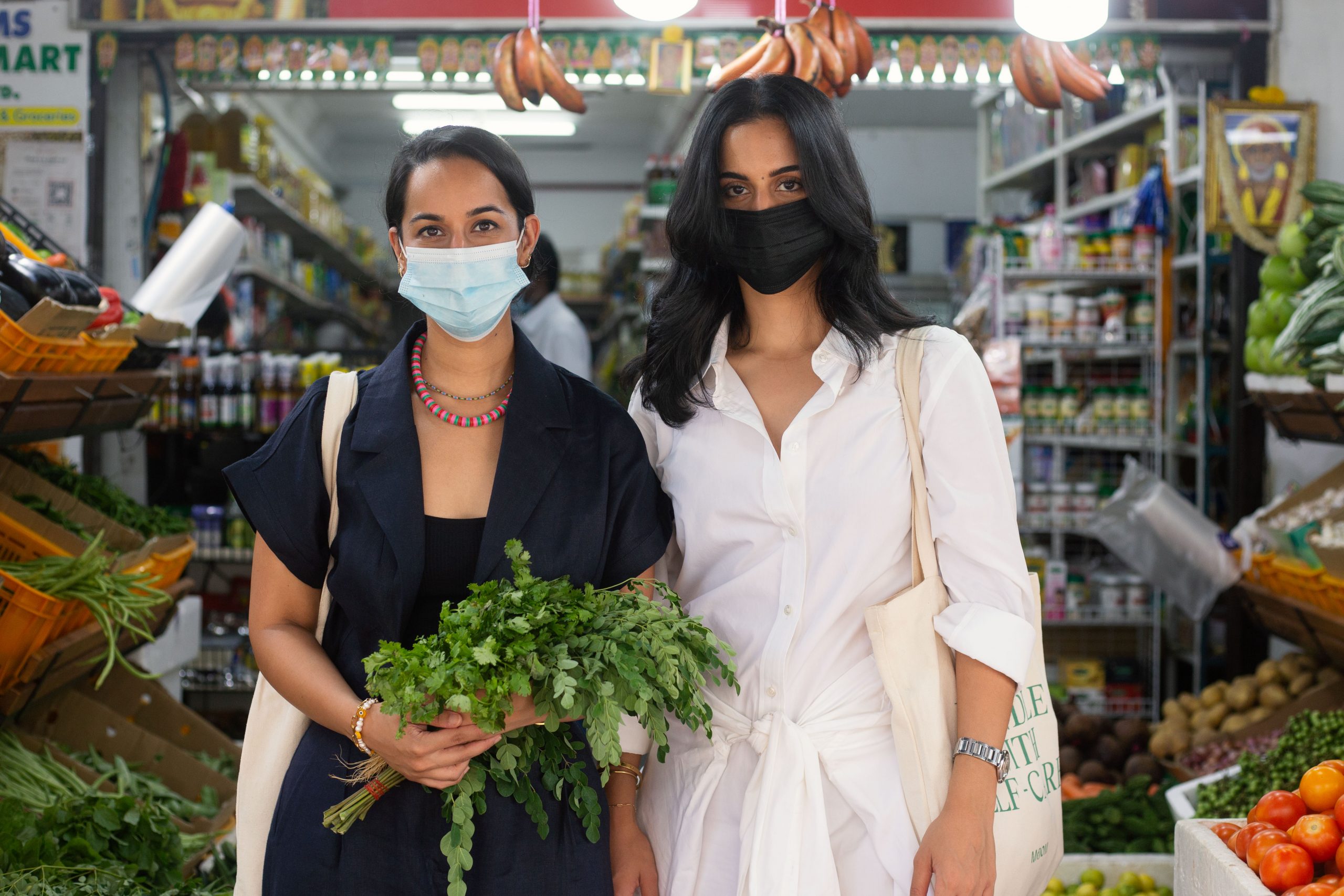These days, talking about our bodies isn’t as taboo as it was anymore. Even in conservative Asian cultures such as ours, we’ve shifted towards franker discussions of our relationship with sexuality and self. In ‘Intimates’, we’d like to kickstart open conversations about the wellness of our private parts—in both the physical and psychological sense. Today, we talk about modern female supplements.
Photography by Marisse Caine.
“In modern medicine, we go to the doctor based on a specific symptom in a specific part of our body. Think about it — we’ll go to a nutritionist for our gut, a therapist for our mental health, a knee doctor for our knee. But what if these issues are actually all connected?” Maya and Mili Kale put forth.
The sisters, founders of Ayurveda-influenced wellness startup Moom, frame an interesting perspective.
ADVERTISEMENT
“What if your gut is acting up because of your stress, and your knee is acting up because you’re exercising too much because you’re stressed? We believe that traditional healing modalities treat bodies as whole beings, rather than a sum of their parts.”
With recorded historical roots in India since the 2nd century BC, Ayurveda, more or less, promises holistic health. What this ancient medicinal system advocates is self-care. Way before mindfulness and me time got turned into stickers for Instagram Stories.
The word “Ayurveda” itself is Sanskrit, defined as the knowledge of life and longevity. The central tenet of this philosophy — forgive the acid trip platitude — is that everything is connected, man. The body, mind and spirit influence and inform one another; the unique combinations of which make up a person’s personality and constitution.
Illnesses are often attributed to a certain part of a body (immune system, glands, cells, etc) not working properly. Ayurveda, on the other hand, proposes a holistic solution. And so does Moom.
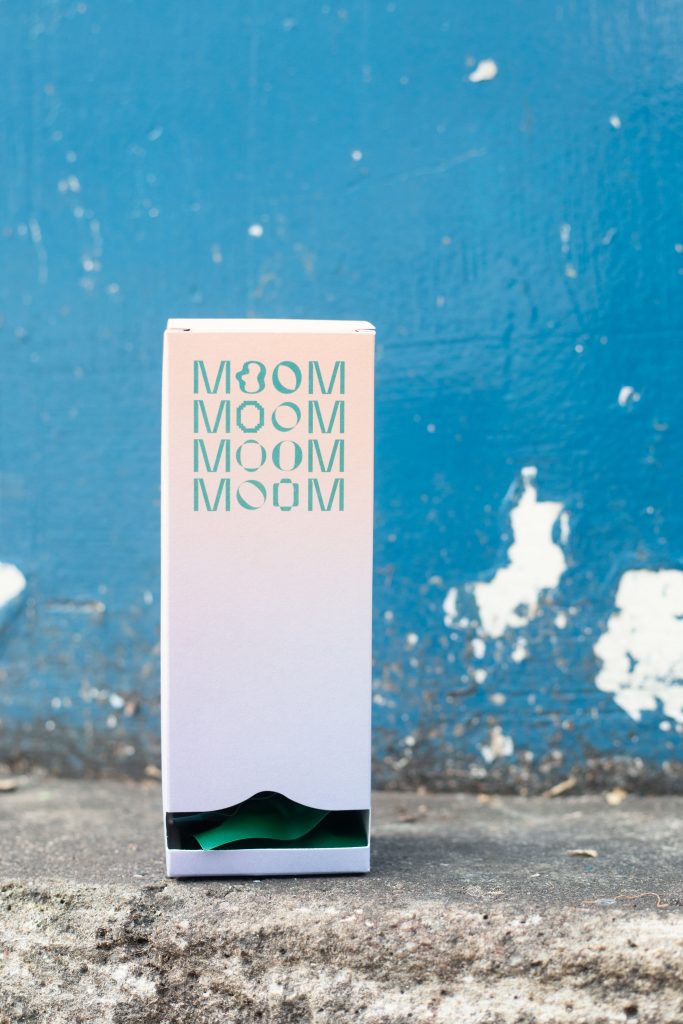
On the surface, it’s easy to describe what Moom is: a company that sells supplements for women. But it’s much more than that.
For one, the personalised approach. Customers would first have to answer a questionnaire for Moom to figure out what exactly they need.
Are you currently taking prescription medications? Are you suffering from hypertension? Do you believe in Eastern medicinal practices? How much fruits and veggies are you getting in your diet? Can God create a rock so heavy he can’t lift it? Okay, maybe not that last one.
A panel of experts from the fields of naturopath, nutrition and Ayurveda will then formulate the concoction of ingredients that go into one’s personalised supplements.
Take my female colleagues in Rice, for example. They’re suffering from a litany of usual media industry ailments like insomnia and chronic lethargy. The extra boost of magnesium in their own Moom supplements have eased their slumberous pains a little, but your mileage may vary.
It’ll typically take three to six months of consistent usage to see the positive effects, Mili says. For the lucky ones, the benefits can manifest within the first month.
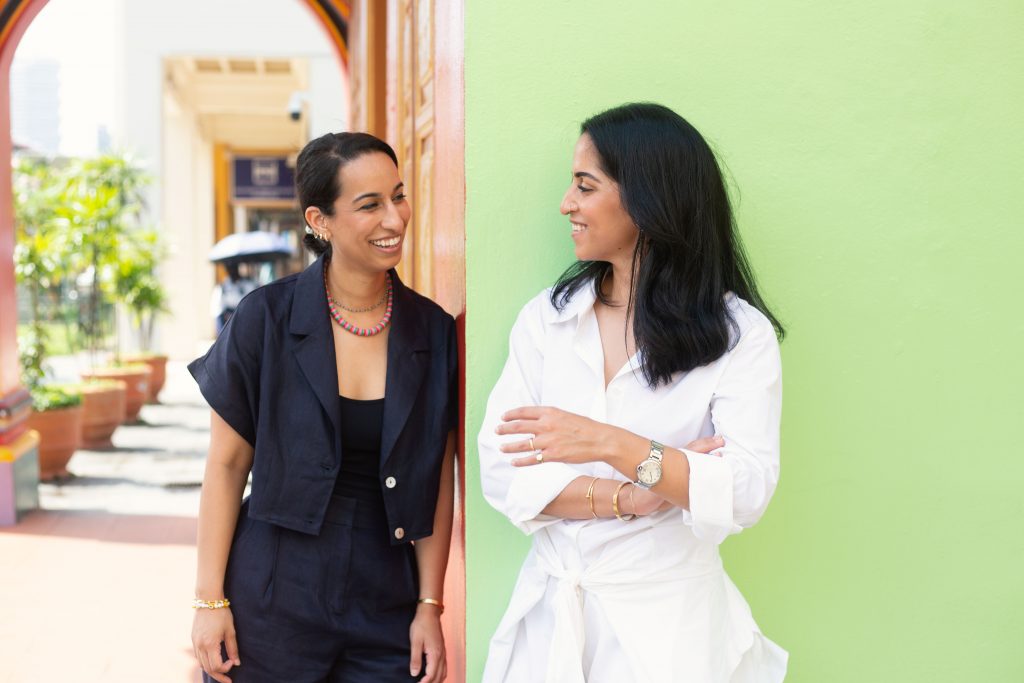
The sisters should know about supplements. They’ve been eating supplements since their school days, when their mother would always place a pill or two as a side dish next to their meals. Each sibling has had their struggles in health — Maya has battled with polycystic ovary syndrome from the age of 15, Mili faced late-age stress acne and eczema at the not-so-tender age of 28.
ADVERTISEMENT
So when prescription meds (birth control pills to control hormones for Maya; Accutane for Mili) gifted more thorny side effects than actual cures, they found solace and solutions in natural alternatives. This, after years of research, countless appointments, and “spending too much money”, recalls Maya.
The need for tailor-made solutions, in their eyes, has never been clearer. While female health issues seem to be unanimous, the fixes can’t be. And so Moom was launched as a personalised, convenient, and holistic supplement platform.
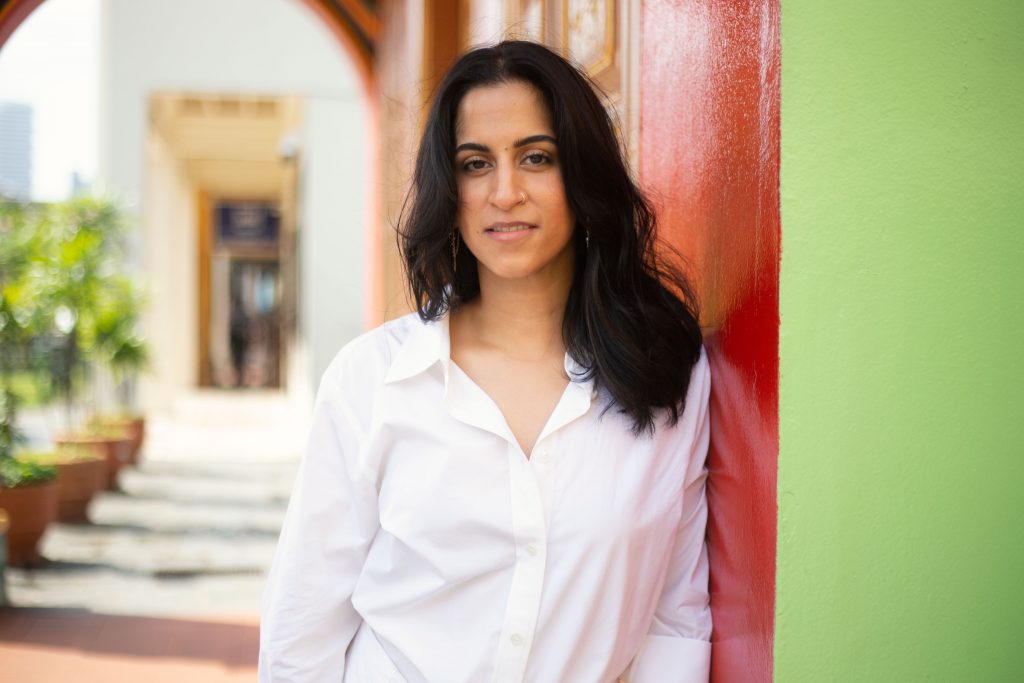
Mili Kale, 30. 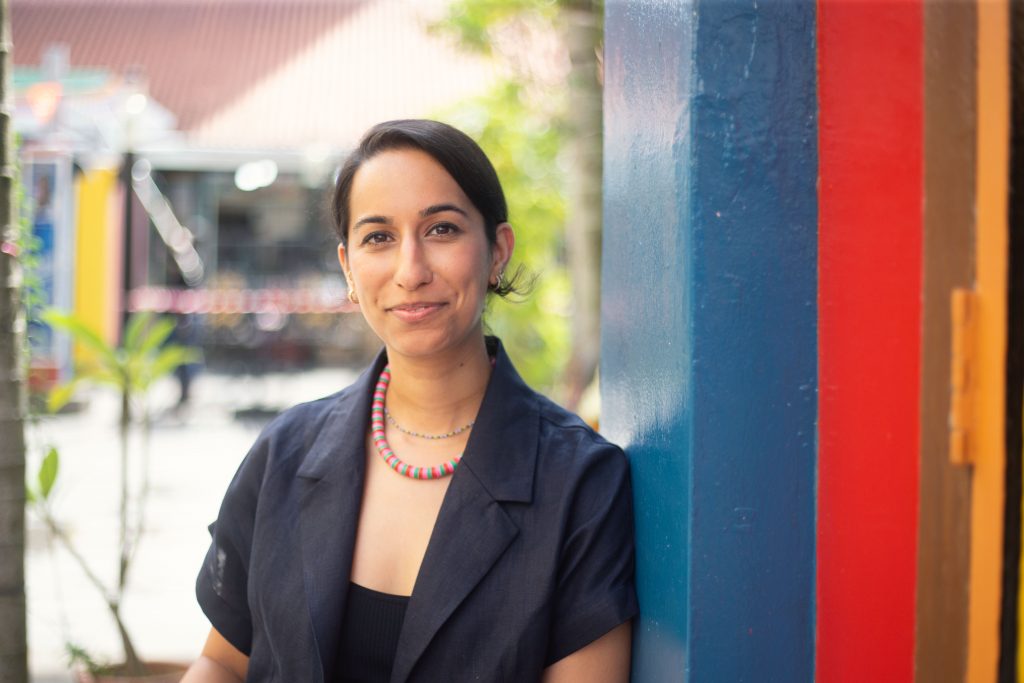
Maya Kale, 27
But what was lacking in the realm of female supplements in the first place?
“SO MUCH where do we even begin,” says Mili.
“There’s such a lack of transparency, personalisation, conversation and community amongst women and brands in this space. When it comes to health, the most important thing is knowing what you need and making sure that what you are taking works for you.”
Ultimately, what Moom wants to be is a girl’s best friend in their wellness journey. A supplementary remedy in the form of supplementary nutrition that combines the best of both modern science and traditional alternative medicine. It was important for Moom’s panel of consultants to come from a variety of backgrounds, from dermatology, naturopathy, gynaecology and Ayurveda.
Prana Principles

The intriguing draw here, for me, is Moom’s cultural slant. In a time of modern vaccines and efficacy rates, it’s interesting that the sisters are banking on the traditions of yore to augment their products.
Now, as much as it’s tempting to assume the millennial revival in spirituality (astrology, tarot, crystal deodorants, et al.) played a part, Maya and Mili have actually lived the Ayurvedic life.
“Our parents have always cooked us ‘Ayurvedic’ food, we’ve been brought up with home remedies to various issues, and we’ve always practised the tenets of yoga,” Maya offers. Thanks to parents who grew up in India, traditional healing has always been part of their lives.
“We really connect with Ayurveda because it incorporates mental health as much as it does physical health, similar to most traditional medicine. The mind-body-spirit connection that exists in traditional medicine resonates with us and with Moom as it incorporates daily rituals that support interconnectedness, rather than symptoms or parts of a body.”
To be clear, it’s not a ‘reject modernity, embrace tradition’ absoluteness. The sisters believe in modern medicine just as much as they put their faith in traditional systems. Amla (Indian gooseberries) and Lingzhi (reishi mushrooms) are as important as antibiotics to support immune systems. Ayurveda’s positive effects work best when used in tandem with conventional medical care.
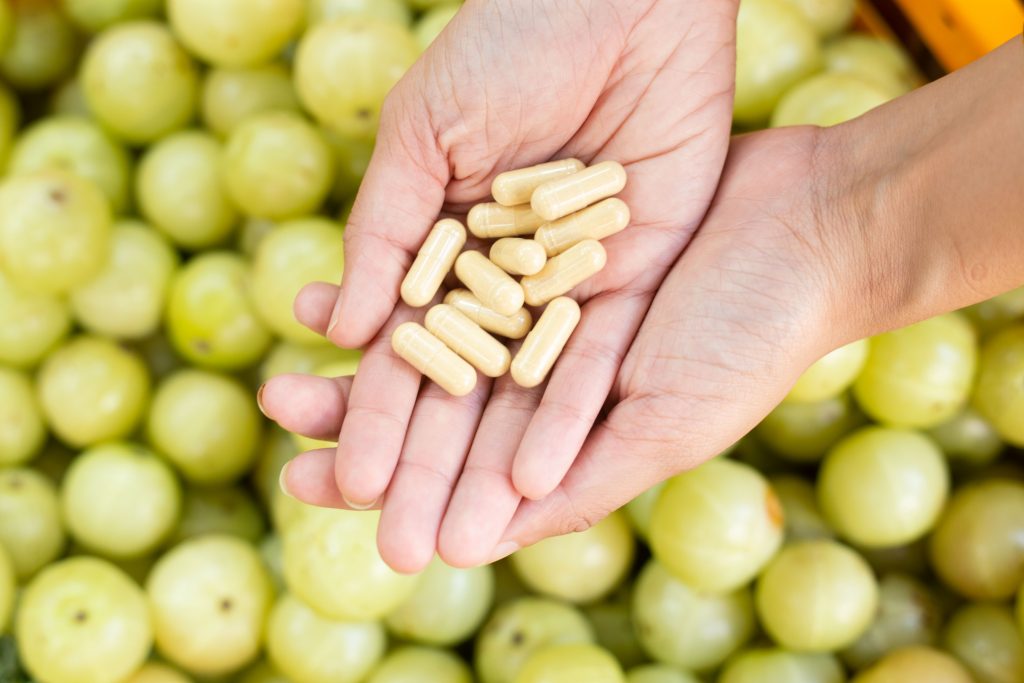
Often, the ingredients utilised in Moom supplements are naturally harmonious for both mind and body. Mili explains.
“The herbs, minerals, and vitamins that we formulate at Moom usually attack more than one thing at a time — take Ashwagandha for example. While it is known to be the holy grail for stress and anxiety, it also supports memory and cognition, sexual health, and muscle recovery.”
The sisters see Moom as a company rooted in traditional medicine across the spectrum of culture. During their research in herbs, minerals and vitamins, they found a surprising amount of parallels between Ayurveda, traditional Chinese medicine and Indonesian jamu.
It makes sense, they say. There’s a reason why these customs have lasted as long as they have among the oldest societies in the world, after all.
Thing is, you can’t even tell that Moom is steeped in customs immemorial. The brand’s design language is positively modern, with a colour gradient that speaks high-concept without being inorganic. On fleek lah is what I’m trying to say.
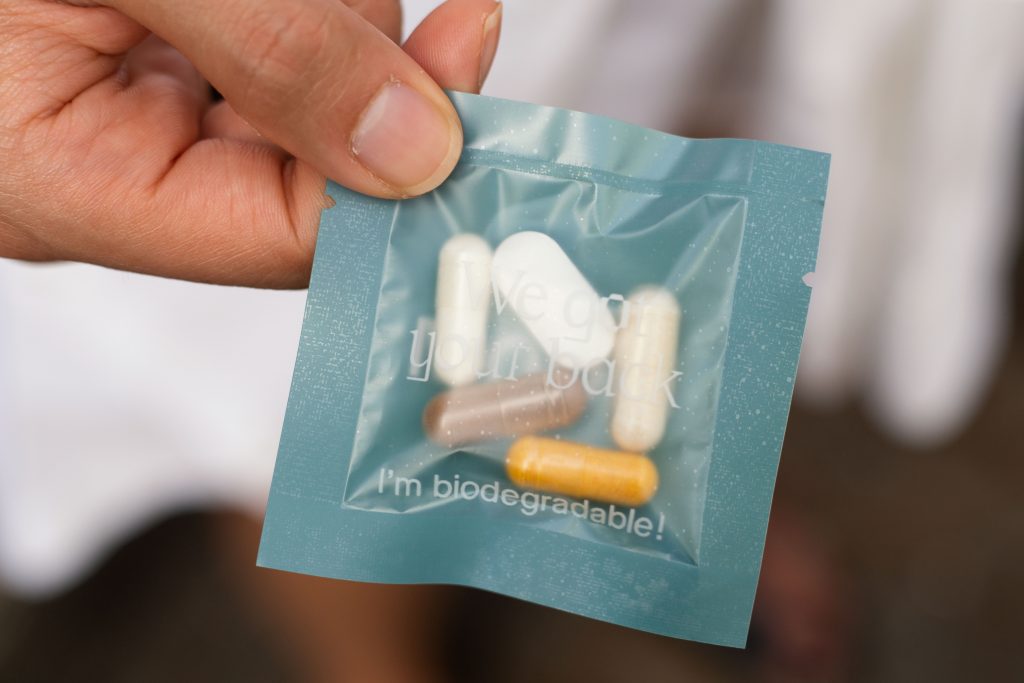
This is intentional. After some time working with their close friend — local graphic designer Kristal Melson — they found something that looks and feels fresh. Essentially, a strikingly different look from what you’d find on the shelves of Guardian and Watsons.
“Our voice and tone is something the both of us work really hard on. Healthcare is typically clinical and cold, and we want Moom to feel like a partner in your wellness journey — the entire experience is about being personal, human, and authentic.
Beyond minerals and herbs, Maya and Mili thought it important to dispense information too. They use their Instagram and TikTok platforms to educate people on wellness, along with details on the ingredients Moom makes use of. This, on top of other helpful daily rituals like yoga sessions and curated Spotify playlists too.
Maya affirms: “We want our community to be in the driver’s seat of their own health and wellness journey. This content covers our ethos and keeps people aware of our balanced approach and cultural roots.”
It’s all part of their vision to fill up the lack of lucidity in the industry of modern medicine and supplements — they actively want folks to have more control and be more aware of what they’re putting in their bodies. If it spotlights the little-known aspects of Indian culture and wisdom in the process, why not?
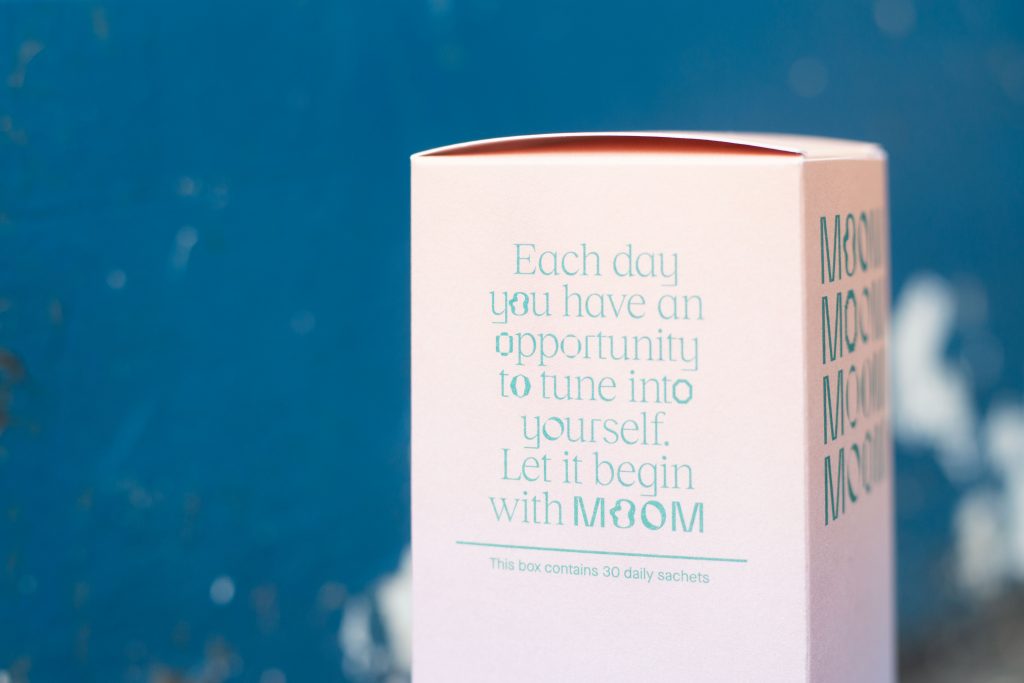
Look, we live in an age where turmeric lattes are all the rage in Los Angeles. So it shouldn’t be so strange that we Asians are starting reclaiming our customs by modernising ancient rituals. Maya and Mili are now appreciating the traditional wisdom their mother has been preaching for years, and they want that pride in heritage to spark for everyone else too.
“Rather than looking to the West, why can’t we be proud and celebrate our own traditions here and now?”
